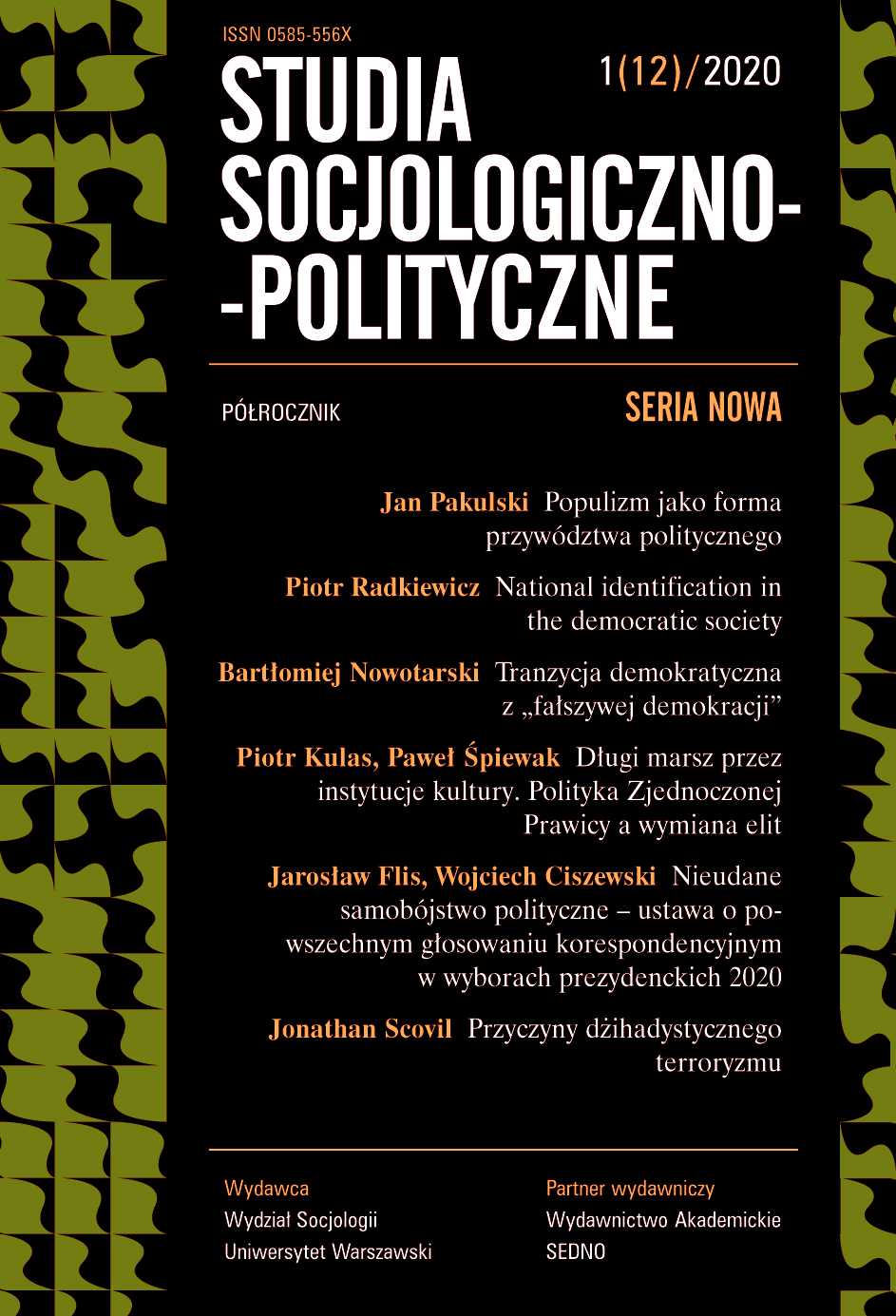National identification in a democratic society. A view from the psychosocial perspective
National identification in a democratic society. A view from the psychosocial perspective
Author(s): Piotr RadkiewiczSubject(s): Politics / Political Sciences, Politics, Social Sciences, Psychology, Political Theory, Political Sciences, Civil Society, Sociology, Political behavior, Political psychology, Politics and society, Social psychology and group interaction, Social development, Social differentiation, Social Theory, Nationalism Studies, Sociology of Culture, Inter-Ethnic Relations, Sociology of Politics, Politics of History/Memory, Politics and Identity, Identity of Collectives
Published by: Wydział Socjologii Uniwersytetu Warszawskiego
Keywords: national identity; national identification; democracy; liberalism
Summary/Abstract: As some researchers note, national identity is probably the only form of identity forwhich people are ready to give their own lives. Deprived of the experience of personalcontact, the strong sense of belonging to the national group must consist of imagining oneself as entwined with crowds of anonymous compatriots in an invisible, butrealistically experienced bond. Though, the concepts of national identity and national identification are often treated interchangeably. they are not equivalent. Group identitymeans the fact of belonging to a specific group, combined with having its cognitive representation. Identification refers to the individual-group personal relationship, and describes the strength of the emotional bond felt with other members and the importance of a given group identity. This paper presents psychological origins of national identification, linking them to the deepest and most basic epistemic, motivational and existential human needs. Awareness of identification with the national group determines the whole range of psychological phenomena from various levels of analysis. From relatively simple manifestations of affect to complex ideological orientations – they all have specific relationships with how people understand democracy and what type of democracy they prefer. The empirical evidence cited in this text proves that the strengthening of the liberal democracy and its cultural values is accompanied by the devaluation of national/patriotic identification in the utilitarian (as a socially dysfunctional phenomenon) as well as in moral sense (as a source of hostility and intolerance). However, other empirical results show national identification as a necessary component of social bonds, and a basis of social mobilization around important collective goals.
Journal: Studia Socjologiczno-Polityczne. Seria Nowa
- Issue Year: 12/2020
- Issue No: 1
- Page Range: 27-50
- Page Count: 24
- Language: English

